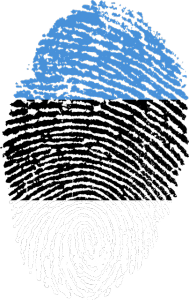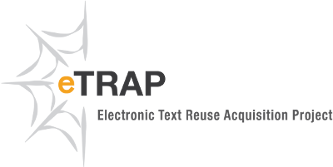We will be giving a workshop on Text Reuse at the
Translingual and Transcultural Digital Humanities Conference. Estonia, 19-21 October 2015!!
Day of workshop: Wednesday 21 October 2015
Find the full announcement below:
—————————————————————————————————————————————–

eTRAP (Electronic Text Reuse Acquisition Project) is an Early Career Research Group funded by the German Federal Ministry of Education and Research (BMBF) and based at the Göttingen Centre for Digital Humanities at the University of Göttingen. The research group, which started on 1st March 2015, was awarded €1.6 million and runs for four years. As the name suggests, this interdisciplinary team studies the linguistic and literary phenomenon that is text reuse with a particular focus on historical languages. More specifically, we look at how ancient authors copied, alluded to, paraphrased and translated each other as they spread their knowledge in writing. This early career research group seeks to provide a basic understanding of the (historical) text reuse methodology (it being distinct from plagiarism), and so to study what defines text reuse, why some people reuse information, how text is reused and how this practice has changed over history.
